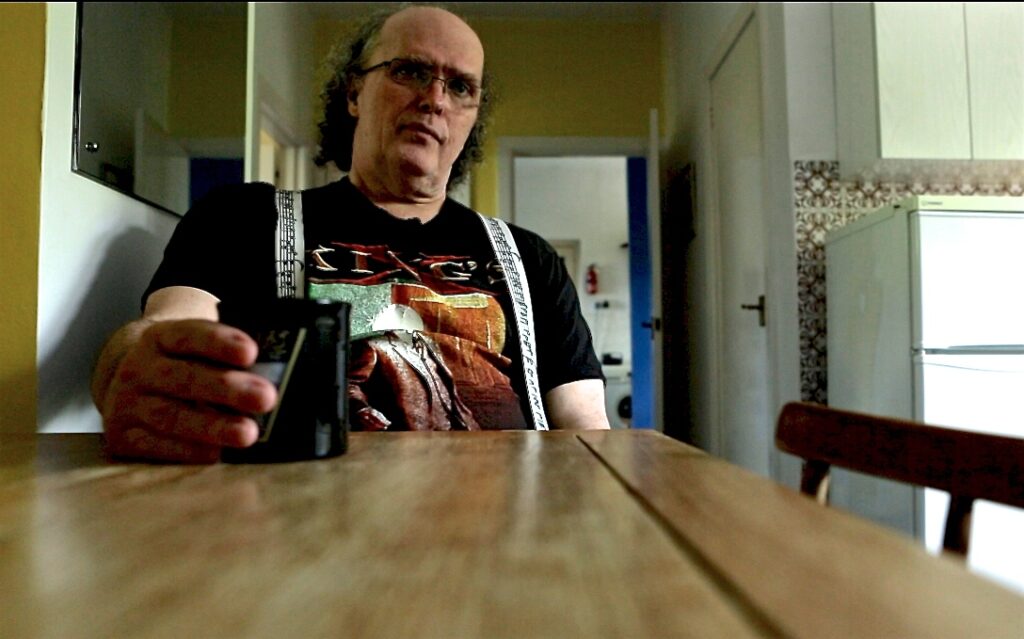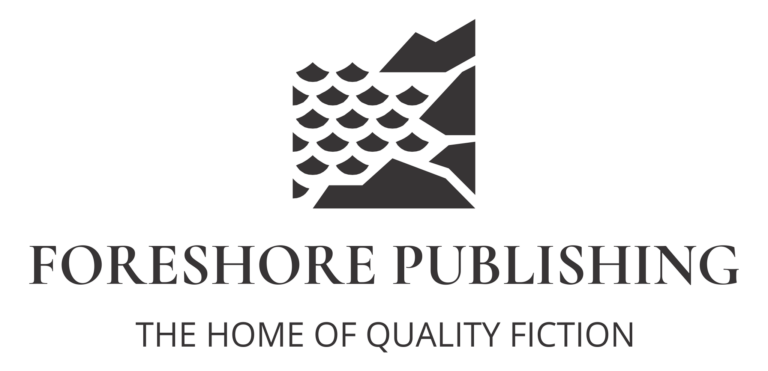
Q&A: Bertie Beeching on his dystopian novel Dreamer’s Grid, an imaginative and surprisingly plausible narrative set in a post-apocalyptic world ravaged by an epidemic which erases joy that follows the inhabitants of a commune battling for survival. Their only hope lies in escaping the bleakness and emotional turmoil to a place known as the Grid, where rehabilitation through simulated dreams is possible. Congratulations on your debut novel, Dreamer’s Grid! You’ve set the story in a dystopian world – why did you choose this genre? I think the same reason that the genre resonates with both the tail end of the Millennial generation and also those generations that follow: the real world is always in a bit of permanent, potential doom. We’ve heard of the ‘scary stories’ of the World Wars or Nuclear Winter, and equally we’ve had semi-apocalypses like the spread of COVID, plus the news is constantly saying the environment is inches away from utter destruction. Many dystopian texts present characters that feel they are mostly powerless to do anything about such oncoming doom, and I sense these generations might relate to this as we watch world leaders pull out of climate agreements and suchlike. Dreamer’s Grid presents a future where humankind is reeling from a ‘virus’ that makes people suicidal – depression has become an epidemic. The protagonist Marly is so tired of life, to the point of almost letting a starving dog maul him in the opening pages of the story. What inspired you to explore such a powerful theme? I’ve already mentioned COVID (and there are influences), but it all started with Swine Flu. Again, it’s the sheer uncertainty of it all – both viruses made an awful lot of people panic even if no one they knew had actually had contracted it. In contrast, recent statistics suggest one in six people could have a mental health problem, and yet especially as a student I found it curious no one seemed bothered by this. The central crux of the novel has always been this: if depression could be as contagious as a virus, would more people start caring about it? As for the dog attack – surprisingly there is a sudden positive hidden within the violence, but you’d have to read and find out what that is… Marly only really has three close connections – a father figure in Rev, an old priest who lives on the outskirts of the village; Juwel, a close friend who saves Marly from the dog attack at the beginning of the story and Clotwell, Marly’s teacher. Can you tell us something about the developing relationship between these characters and what you think each of them brings to the story? Rev finds Marly as an infant, and so there is a sort of pseudo-biological trust there, but it also brings Marly to one of his first dilemmas – Rev is essentially one of the founders of the village where the story is set, yet time has made him an outsider, so whenever Marly visits this place of familiarity and safety, he risks isolating himself. Naturally, his life-long friend, Juwel, would not likely leave him entirely shunned, but it is partially due to something Juwel did in the past that helps convince Marly to leave the village later in the story. Then, Clotwell. The name is symbolic in that disgusting English-teacher way. While Rev talks philosophy and Juwel talks about life before societal collapse, Clotwell gives more pragmatic advice that tends to address issues quickly – such as how it is not a good idea for Marly to hide alone in a dark corner just as a cohort of female pupils are led past him. I expect people will notice that Marly does not have much variety in the way of female role models, but this too becomes quite an important quality in the wider story. Dreamer’s Grid is, if not exclusively, aimed at Young Adults. There are elements of sci-fi and modern technology alongside important themes of food poverty – they all live in a post-apocalyptic commune, where life revolves around the endless farm work needed to feed the village without unnecessary starvation – mental illness, friendship, loyalty and betrayal – can you offer any tips to teachers on how to use your book to discuss these issues? God forbid it end up in a classroom! I suppose much discussion could be had by simply reading it and asking ‘which issues or anxieties can you [the pupils] see appearing that you’ve also thought about?’ or perhaps more simply just asking ‘why did that happen?’ When the dog is preparing to attack Marly, the thought crosses his mind that ‘a dog has to eat too,’ and so we can ask what would need to happen to a human being for them to think in this morbid way. This is, after all, the world they might be inheriting one day. How long did it take to write Dreamer’s Grid, and what does your writing process look like? Do you type or write in longhand? How many drafts did you go through before submitting the final version? Ah, yes. The mildly embarrassing question! If we can somehow spin this into a tale of resilience (rather than procrastination), I think it truly began around 2015 thanks to some kind words from an English teacher, when I first wrote down ‘would people care about mental illness if you could catch it?’ That, and a number of statistics I had read regarding suicide in young people, quickly became the opening lines of the stranger who announces ‘The Grid’ to Marly’s village. I then thought I should probably practise and learn a little more about writing – thank you, [University of] Nottingham – and so in reality the ‘real’ writing started closer to 2019. As for the process, I tend to carry a notebook around with me everywhere, and buy a fresh one each year. First drafts usually go on paper, and then as I type them up I

Robert J. Thomas’s meticulously researched novel The Halibag Boys: A Time To Fly is a gripping account of an RAF crew in northern England aboard the heavy bomber Handley Page Halifax, known as the Halibag, during World War II. The author answers our questions about the novel and how he wrote it. How do you feel about being a published fiction author? Do you consider yourself an historical novelist? Obviously, it’s a pleasure to be published, it’s why we write books to reach a wide audience. A lot of work goes into a novel and to see it in print and on the shelf for sale is an achievement, people spending their money to buy it and hopefully enjoying it an honour. Although historical fiction is my preferred format for novels, I also write general fiction, as well as nonfiction titles. I create what inspires me, I have several projects on the go at any time, which one is worked on today depends on my mood. I find it helps not to be tied to one genre, after finishing a novel I find non-fiction cleansing. The story is told through the eyes of newly qualified flight engineer John Jenkins. How did he and the times you write about in this novel first lodge in your imagination? John, the central character of The Halibag Boys, was a real person, though his name has been changed. He was a direct relative of mine, though I never met him. After the passing of my mother in 2008 I began researching my family tree, not an uncommon activity after losing a parent I’ve since found out. During this research I stumbled across John, though initially just evidence that he once existed. I was aware of him vaguely as I had been told as a child he had served with Bomber Command during World War Two, but all those who could tell me more in later years were gone. Purely by chance, as is often the case, a photograph of John came into my possession. He was standing with a group of men beside an aircraft, this set me down a road that led to opening up his life to me. From this photograph I identified the aircraft, it was a Handley Page Halifax. At this time, like many people, the British bomber of the war was the Lancaster as far as I knew. Having established the Halifax’s identity I was able to determine that John was not in Bomber Command, but was in fact part of the Middle East Command and attached to the Royal Australian Air Force, though a member of the RAF. Armed with this knowledge I set about finding his story, at this time with no intention of using it for a novel. Facebook of all places led me to that eureka moment all researchers dream of, I found the son of John’s pilot. A friendship began that has led to over ten years research into not only John, but the aircraft he and the crew used. As part of this research RAF Riccall came to my attention. At first it was nothing more than an entry on John’s service record. Realising where it was and that I had once lived not thirty minutes from it without knowing of its existence, I began to research RAF Riccall as well. More years of work followed, including many visits to what remains of the station today. It had been my intention to write a history of RAF Riccall as a non-fiction book, I had already completed one on John’s Halifax, the one in the photograph. I wrote instead John’s biography, a humongous book covering everything I knew of his life, which by then was quite substantial. John’s story I thought was complete. As with many things that change your life, one day a lightbulb went off in my head fictionalise John’s story. I thought it was an excellent way to tell it, and make something a wider audience would want to read, non-fiction being rather limited to those only interested in its subject, I believe. Where to start I pondered, his beginning wasn’t anything special, but his war record was. As a big kid at heart, I love all things World War Two and over the years become quite an authority on the Halifax and the squadrons John served with. I like Riccall village and made friends there, I knew the former station well and had become quite an authority on it, it all fell into place. Everything I needed I already had, volumes of books, hundreds of documents, maps, all the research I needed to write an historical novel based at RAF Riccall was in my office and my head. Laying in bed one night, unable to sleep, the opening paragraph entered my head and The Halibag Boys: Time to Fly was born. What place does research have in your writing? When does the fiction take over from the facts? Research is of paramount importance. If I can’t find what I need for a book and prove it, I will leave it out rather than make something up. I like my locations to be real, either still or have existed. I tend to change the names of town, streets, buildings etc but always base them on maps or images I have. In Halibag Boys when the lads are walking through RAF Riccall each step is planned against the real RAF station and plotted on the station map I have. Buildings are where they should be and for the purpose they were used in reality. I want the reader to walk through the station with them, as I did when I wrote it. Fiction, for me, takes over for the interaction between people, and sometimes to abridge events that actually took place to suit the story. As an example, in the book my heroes nearly get hit by a piece of debris flying of a broken propeller on a taxiing Halifax. This

N.C. Fortune lives in the Cotswolds. He is a poet and former musician, playing the drums in bands. His first novel Falling Story is a supernatural coming of age ghost story about a girl who went missing in a Gloucestershire village in the 1980s. James Baxter, author of Samuel Beckett’s Legacies in American Fiction, wrote that Falling Story is “an artfully constructed and emotional ghost story and folk horror” with the potential to achieve enthusiasm among horror fans, as well as “high-concept horror cinema” appeal – The Blair Witch Project meets Paul Auster. What attracts you to the genre of horror? My Grandfather and uncle used to tell me ghost stories as a young boy and this in turn attracted me to the horror genre. I get the impression that you’ve been writing most of your life, what were your early influences? I’ve been writing in some form since my early teens and a main early influence on me was the writings of J.R.R. Tolkien.Was it always going to be horror? No. I tried to incorporate aspects of mystery and the supernatural into my novel as well as horror. I was keen to avoid horror cliches which could have greatly detracted from the impact of the story. The novel’s central location of Prestbury, Gloucestershire provides a vivid backdrop to the story (there are historical claims of the area being amongst the most haunted in England). Have you any real life experience of ghosts? Yes several. One such incident was when one night whilst stargazing, i saw a luminous patch of light form in the field next to my garden and slowly drift across it before then dissipating. I live close to Prestbury have extensively researched the ghost stories attached to the village and the surrounding area. What is your writing process? After an initial concept for a poem or story, I try to collate ideas from various sources then try and pull them together to form a cohesive piece. The first thing that strikes me about your writing is that it’s very filmic. How did you arrive at this point, and are there influences from movies feeding into that? The filmic aspects of my story developed over time and were as a result of different plot strands coming together. Film wise though I loved the Hammer horror films of the 1970’s and other classic horror films such as The Exorcist and The Fog and I’m sure these helped shape my story in some aspects. How do you manage to navigate what has already been done before in the genre? You are working in a field where so many of these images have been so well-trodden. I try to be true to the story and avoid sticking to one genre. I find this lends itself to originality and lessens the chances of falling into the traps of horror cliche. Who have you been reading lately? I have recently been reading a biography of the Welsh poet Dylan Thomas. Name a book that made you want to write. The Lord of the Rings by J.R.R. Tolkien. Falling Story by N.C. Fortune is published in the Autumn by Foreshore. N.C. Fortune was born in Streetly, Staffordshire, with the congenital condition Spina Bifida. He moved to the Cheltenham area in 1978 and on his twelfth birthday was given a drum kit, which led to him becoming obsessed with drumming and music. He spent his teens through to his early forties playing the drums in bands, often professionally, only stopping when his disability worsened. His grandfather first told him stories of the paranormal which both scared and intrigued him, and in the 1980s he had a ghostly experience which further developed his fascination. Around this time, he visited Prinknash Abbey near Cheltenham and in the café bookshop found a copy of a book called Mister God, This Is Anna by Fynn which served as one of the inspirations behind Falling Story. N.C. Fortune is a poet and lives on his own in the Cotswolds. ORDER YOUR COPY James Baxter, author of Samuel Beckett’s Legacies in American Fiction, wrote that Falling Story is “an artfully constructed and emotional ghost story and folk horror” with the potential to achieve enthusiasm among horror fans, as well as “high-concept horror cinema” appeal – The Blair Witch Project meets Paul Auster. Smart but troubled, Jo has a secret – she can see ghosts; and after opening the family grimoire, she finds herself at the centre of an intoxicating occult ritual. Falling Story is a supernatural coming of age ghost story about a girl who went missing in a Gloucestershire village in the 1980s: M.R. James for a new generation. Add to Cart



